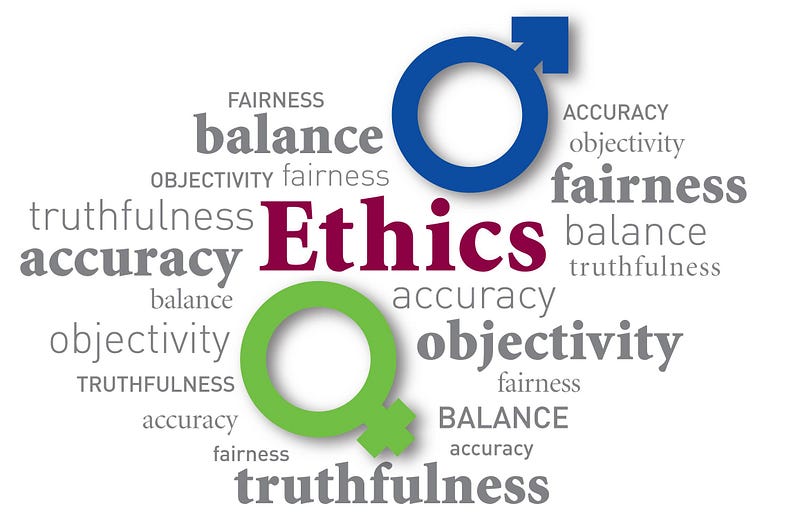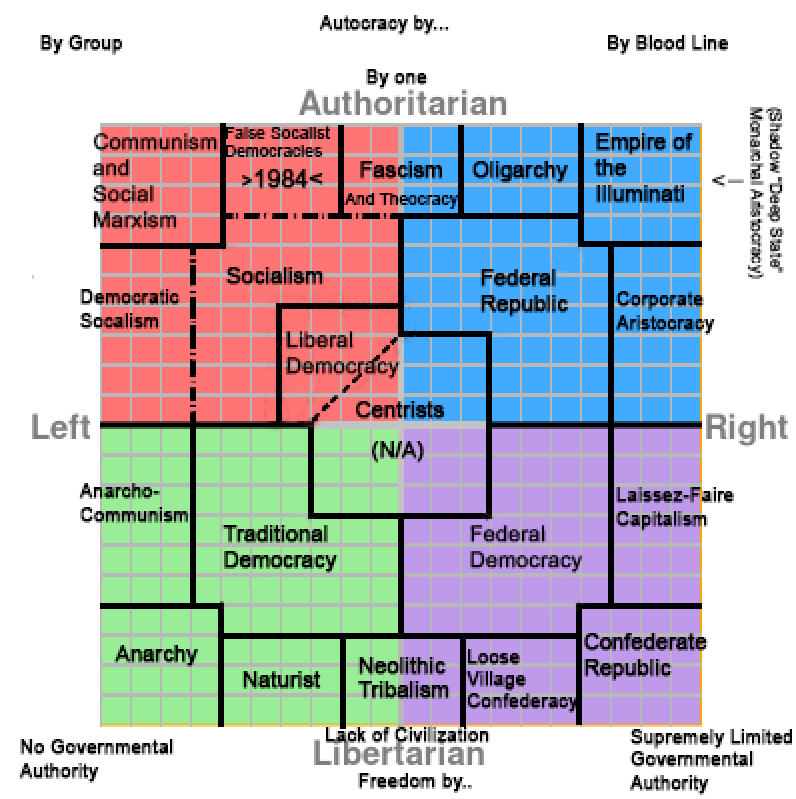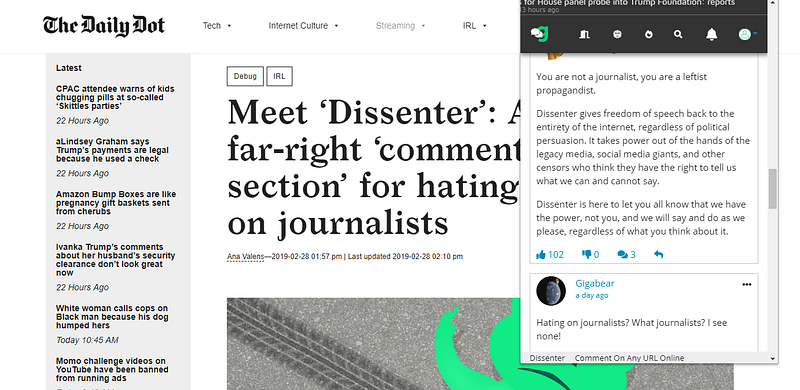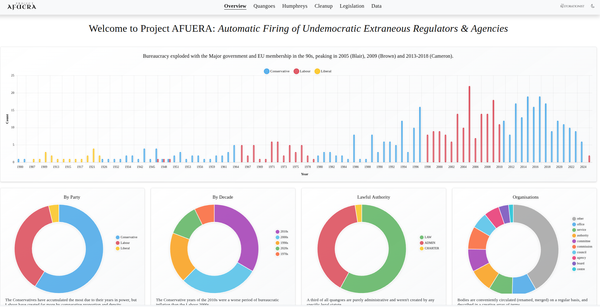The Glorious, Subversive Chaos of Free Speech

What’s the easiest way to convert a swing-thinker to a moderate? Expose them to extremism. Want to convert an ordinary person into an extremist? Tell them what they’re allowed to say, and what they’re not.
People don’t appreciate being told what to say or think.
It’s been an interesting week in this new idea of “free speech”, which many media outlets now classify as a “far right” behaviour akin to assault, discrimination, terrorism, or a form of “existential” murder.
Another Week of Multi-Spectral Human Corruption

A TV actor was arrested on suspicion of faking a Trumpster-driven hate crime against himself in order to get a boost in pay and publicity, then just goes back to work.
Tommy Robinson pulled down BBC Panorama’s pants for YouTube to show they collaborated with an extreme left-wing group to frame him for sexual assault. A few days later he was banned from Facebook and Instagram.
Left-wing darling Justin Trudeau had a bit of a problem with an attorney general he silenced, who refused to do his bidding and help out a Quebec company who had been bribing customers with prostitutes.
Project Veritas released internal documentation from an ex-Facebook employee detailing a methodology in use to tackle “troll farms” and other “unpleasant” types, including “de-boosting” pages.
The UK Labour’s party old, old problem with antisemitism rose yet again to split it into pieces, with MPs resigning everywhere.
Arch-heretic Alex Jones appeared on the Joe Rogan podcast to clarify his stance on Sandy Hook and confess he was “retarded”, hooking in nearly 200,000 live viewers. He’s still banned from everywhere.
But interestingly….
….Gab, the daring young social network, released a browser extensionnamed “Dissenter” to overlay uncensored commenting on any website, anywhere.
The Slow Suffocation of Classical Journalism
Journalism, oddly, has a lot in common with the natural sciences: it is predicated on the idea of discovering the truth, through a methodology of gathering objective facts and their references, which are then tested and discussed. In short, it has always been based on impersonal, professional objectivity, i.e. digging for the objective truth, then applying opinion. For example, the SPJ Code of Ethics, or the NUJ Code of Conduct.

What has always distinguished the broadsheets from the gutter tabloid press has been this golden dividing line. The tabloids publish sensationalist nonsense to incite further sales, whereas serious journalists are quasi-scientists. The BBC is said to exemplify this with its strict policy of impartiality.
And then, there is the editorial content of a publication, clearly demarcated as the layer of the press dedicated to providing a subjective opinion, always coloured with the bias which panders to their readers’ beliefs.
In reality, it is hard to achieve the former. Which is why it is so crucial to aspire to.
The latter has collapsed and merged so appallingly in recent years — fuelled by postmodern students indoctrinated at universities by the idea the objective is actually a “situated” form of subjective — it’s become encapsulated by the clumsy phrase “Fake News”.
It’s struck a chord with a lot of people who have become increasingly angry with the new era of digital publication.
Everyone I Don’t Like is “Far”
Political biases are easily measurable. For example, the political compass is modelled on 2 scales: a horizontal axis determining economic ideology (from communism to fascism), and a vertical one dealing with social control (authoritarian to libertarian). It’s trivial to place someone on it, and we tend to refer to the “left” and the “right” from French parliamentary position.

The compass is, self-evidently, an objective reference which is, prime facie, absolute. Most people would broadly find themselves clustered somewhere around the centre, in a moderate distribution — authoritarian on some issues, libertarian on others; conservative in part for something, liberal for the rest.
The trouble comes not only when clever activists call it a “spectrum” (it’s not), and then start to use relative terms for others’ positions.
Hence the use of the phrase “extreme left” or “far right”.
If you sympathise with Hitler or Mussolini’s murderous collectivism, anyone at all to the left of you on the scale is “far left”. Conversely, if you were a blue-haired Marxist student wanting the world to be a workers’ commune, almost everyone else is “far right”.
- What exactly is “far”?
- What exactly is “extreme”?
We can place most people and publications on the economic ideological axis without any need for these terms.
We all believe we start at the centre and measure things from there. But hardly anyone, ever, lives on the bullseye. “Far” becomes relative to your own position. If you realise your own position.

Smartasses tend to use our own subjective perception and political bias as fallacious “proof” of such postmodern theory. Derrida was right! No, he wasn’t. Derrida couldn’t even get the basics of signs correct.
Being unable to separate objective truth from subjective thought is a 200,000-year-old human problem. And it doesn’t mean there one extreme (objective) is merely a form of its opposite (subjective). It means you can’t think.
Nor does it mean there is no objective truth and everything is someone or something’s “narrative”.
It’s a fair bet you are reading the thoughts of an ideologically-compromised writer when their headline uses the relativistic term “far”.
Explaining High-Minded Views To Idiots
Nowhere is ideological possession more evident than these digital publications. Newspapers tend to make no secret of their biases, for the simple reason their readers share them and few buy their pages on the sole basis of delving into the contrary viewpoint. Their readership also skews on age, as research has consistently demonstrated conservatism tends to increase with it.
Amongst the worst offenders are those blogs-cum-newspapers aimed at “millennials”: Buzzfeed, Vox, Huffington Post, Motherboard, The Conversation, Engadget, Daily Dot, The Cut, The Wrap, Vice, Babble, Slate, Salon, et al.

Buzzfeed — along with the Gawker family of shit — is well known for its employment of “clickbait” headlines (10 things which…., number 7 will blow your mind!) Vice is out-and-out extreme left-wing and makes no bones about it. Its flagrant support for Marxist theology, “anti-fascist” groups, and its hipster audience are unmistakable. Its so-called “edgy” student content is unashamedly created by wishfully “edgy” reporters for “edgy” people.
Some of the material propagated by these outlets and their bloggers is staggering in its vulgarity and stupidity — experiments with fresh menstrual blood, blatantly advocating violence, and mothers humiliating their sons as “potential rapists”.
Most of the rest follow a “liberal intelligentsia” or “champagne socialist” Vanity Fair-genre magazine heritage, (for example, the Guardian, and its obsession with vaginas), including one of the most manipulative perpetrators, Vox.
Vox has a far more dangerous preoccupation: presenting itself as an “objective” encyclopaedic news source. Vox explains things, in a far less entertaining way than Bill Maher. Vox has a Netflix documentary series, as well as professorial column entries called “[Subject], Explained”. When a publication is “explaining” to you, the brain-addled consumer, difficult concepts you need to know, it’s a fair warning to be suspicious. Journalism is about presenting the facts and allowing the reader to make up their own mind, not implanting them with a perspective you believe they should have.
For the most part, the entries are comprehensive and well-organised. That is, unless you’ve read a lot more around the subject, and realise what’s missing from their analysis and where the weight of the material is centred. It’s quite clever. Take, for example, how Vox “explains” their arch-nemesis Jordan Peterson, an apparently “right-wing celebrity”:
Jordan Peterson is also a right-wing internet celebrity who has claimed that feminists have “an unconscious wish for brutal male domination,” referred to developing nations as “pits of catastrophe” in a speech to a Dutch far-right group, and recently told a Times reporter that he supported “enforced monogamy.”
Peterson is a highly-cited psychology professor who has repetitively explained he is centre-left. It’s not that each of the points are wrong — in a single paragraph — , it’s that the supposedly “objective” file is obviously laundering a viewpoint which the writer is attempting to transplant into readers’ minds, in the hope they will take on a specific opinion of the person they are slandering.
Its article on Brexit in Northern Ireland — which starts with an emotive Novella-style intro about the victims of a bombing — finds itself concluding, despite absolutely no-one on any side wanting police checkpoints:
A soft Brexit would balance the deeply held interests of all sides by avoiding a hard border between Northern Ireland and Ireland, and avoiding any barriers between Northern Ireland and the rest of the UK.
This is manipulatively presented as an objective fact when it is a subjective opinion. And a bad one, at that. Even worse, it is a form of advocacy. Which is naturally no problem at all, as long as you don’t disingenuously masquerade as the Press, and simply classify yourself in honest form as an activist think tank.
And of course, there is America’s complex gun “problem” (rather than “debate”), another problematicisation which apparently can be “explained” in less than a minute:
What’s behind that passion? [Kristin Goss, author of The Gun Debate: What Everyone Needs to Know], who’s also a political scientist at Duke University, suggested that it’s a sense of tangible loss — gun owners feel like the government is going to take their guns and rights.
This is in an “article” which is entirely composed around the justification for doing just that, ignoring the historical reason for the Amendment’s existence in the first place. And Goss, as her biography illustrates, centres most of her publishing work on gender.
All 3 highlight what would normally be perceived as “right-wing” talking points. All 3 are polemic in nature, in comparison to the other traditionally “left-wing” topics, which are presented defensively, with optimism. The examples go on, and on, and on, and on, and on. The Green New Deal “explanation” is a triumph of ant-pragmatism.
And here’s why that’s a bad thing, as they say in such a condescending manner.
Although they maintain a pretence of “press” credentials, as well as aspirations to cultural gravity, very little, if anything, published by any of these sites can objectively be described as journalism.
Journalism has nothing to do with what you believe or what you want others to believe. Producing “briefings” which are copied and pasted quite rightly lands you accusations of being a “non-player character” in a video game.
Dissenter: The Next Threat to Overton Speech Control
Taking inspiration, presumably, from Chrome extensions designed to mass-brigade social media posts, and practices like shadow-banning, the markets responded, and Gab launched Dissenter. Again, presumably, plans to get it banned are already underway.
Its users are clearly having a lot of fun already. However, the digital news world didn’t take the news well.

Predictably, “edgy” Vice — which doesn’t allow comments — predictably denounced it as a Neo-Nazi tool to redirect innocent victims to paedophilia videos from a site which, in itself, caused a man to murder innocent people:
“Within 24 hours of the app launching, more than 6,000 people were using it, posting more than 10,000 comments on 4,200 different websites, Gab claimed.”
Gab… claimed. Unlike the people we like, whose truth is authoritative.
London’s Metro newspaper went even further, and now apparently puts “freedom of speech” in “quotes”, along with “censors”:
“Tommy Robinson supporters are using a new ‘freedom of speech’ tool to get around media ‘censors’ and social media bans. Just as the far-right activist was purged from Facebook and Instagram yesterday, a new platform for white supremacists and other extremists to comment freely on any news article or web page was launched. [snip] Even if a news site has shut off or disabled comments on a story, the Dissenter button allows users to chat without fear of being silenced.”
Being silenced? Is this 2019? The public comments on that article range from mockery to enraged:
“A new platform for white supremacists” ?
You are precisely the reason a “new platform” is required, you peddle rubbish, not News, unbridled, unbalanced, ill-informed, Rubbish.”
Vox, of course, didn’t need to say anything, because they have it explained. Engadget claimed it was a “safe space” for “fringe” voices. The SPLC went the discreditation route, which unfortunately got them caught out when the hosting provider flatly accused them of lying.
But the week’s award for nuttiness goes to the Daily Dot (above), whose “LGBT Reporter” (whatever that is) took lack of self-awareness to new depths by announcing mere hours after its launch, — in the past tense — that Dissenter was an institution with a criminal track record:
For the record, slurs are commonly found on Dissenter and they range from racial epithets to homophobic comments.
But most revealingly, she correctly Dissenter users seemed to be commenting a lot more, on something else:
“Journalists are a common target on Dissenter, and users regularly turn to publications’ homepages as venting grounds. CNN is a favorite to hate on, with users calling it “fake news.” Meanwhile, visit Dissenter’s BuzzFeed’s page and you’ll see users spamming “learn to code,” an insult hurled at journalists to imply that they should switch to the tech industry after being laid off. “‘Games Journalism’ activist website,” one Dissenter user complained about Kotaku Wednesday night. “Not a real video games news website. Can’t seem to keep politics separate from gaming either.”
Well, well, well. How curious. And even more curious is how similar the wording to each article is.
In fact, almost ALL of what is being commented on (save the cherry-picked racist nonsense) — it seems, as of today, at least — constitutes a verbal backlash against the corruption of journalism.
For example, here are the “top” comments on Engadget’s hit-piece:
“When did the concept of free speech become “far-right”?
Nelson Riedel II
Right……..I used to love this site before it started adding in leftist politics.This plugin means cowards can not just disagree, censor you and call you a whatever-ist. So if you think this system is full of bad people why dont you join up and give your opinion.
W.O. Cassity
Make a Dissent account, join the conversation. The only cost of admission is that you must be resilient enough to handle people disagreeing with your beliefs. These ‘Journalists’ are overly sensitive cowards.
Carey Warren
In the stunted minds of feckless leftists, patriots who honor precepts of our founders are now “far-right.”
This bozo would have kissed King George’s derrière for permission to blather. Drincc Bepis
It looks like your article doesn’t have a comment section. Why could that be? Are you afraid of people calling out your BS in mass? Could it be that you are smearing Dissenter to prevent people from using it to see why you don’t have a comment section?
jerry huxley
I love how ass-chapped the MSM is over dissenter.
supergtt
shitty hack writes bias enforcing article to signal his outlets good boy points.
Drew Sullivan
Free speech became far-right when the left became far wrong.
Brian Mccarthy
Not far right, just an American here. Thank god the technocrats can’t silence everyone.
Straight
While a few on Gab could, with some validity be labeled “far right” the vast majority are every day ordinary people. Strong opinions that differ from your own should be considered and responded to in a civil manner. Let the free expression of all flow freely across the world and meet it with character, civility and courage instead of censorship and name calling.
Stephen Jones
ironically comments disabled for this article demonizing anyone with opposing views.
Jack Rayner
If our voices are “fringe”, it’s because you accountability-shirking cowards all turned your comments off, silencing anyone that might come to one of your fact-free articles and share some unfortunate facts for the rest of the readership to see. That’s over.
ken cow
When I installed the extension it totally gave me a captcha-like prompt asking me my views on race, abortion, and immigration. Kept failing it, so I have to type “Hitler did nothing wrong” every time I log in. Engadget might be on to something.
Christopher Hickish
The autistic screeching of the MSM over this is hilarious
Thomas Covenant
Yes. It’s “far right” to value free speech these days, since the authoritarian left is the pearl clutching moral arbiters of what is right-speech and wrong-speech, right-think and wrong-think. Orwell is seeming more and more prophetic each day.
No, Engadget, it’s not far right to actually embrace free speech and not be forced to be cowed into silence for expressing a dissenting opinion!
The Eternal Pepe
Do not ever put free speech in quotes.
Joshua R. Poulson
Better title: “Self-appointed gatekeepers to the digital city square smear independent commenting tool.”
This article features more adjectives than arguments and could stand as a grand example of a hit piece.
Batrachian
Imagine being this upset that you can’t silence people.
nyte rider
Most interestingly, Dissenter seems to host — already — an overwhelmingly negative flood of feedback when compared side-by-side to these sites’ own comment sections. The articles receiving the worst invective seem to display the most ideological possession. It’s the “populist” voice or the ugly Vox Populi — those simple people who are yet to be enlightened.
And if you are unsure of what an unsavoury, far-right, uneducated, and existentially-threatening idea “populism” is, here’s what you need to know about why that’s now a bad thing:
populism, n
1 : a member of a political party claiming to represent the common people
2 : a believer in the rights, wisdom, or virtues of the common people
Note: the Oxford definition has been “updated”.
Populism, by definition — and before its suspect “redefinition” is largely the centre ground. The centre is a threat.
The market responded. And it seems, yet again, the ideological blindness has spurred innovation which must be crushed — in order to SaveTheWorld (TM).
Militant Academics = Sloppy Graduates = Engineered Media
There’s a point in most humanities students’ lives when they come face-to-face with the rather ugly reality a large majority of the population, for better or for worse, don’t share their “correct” worldview.

That’s where it all begins to go very wrong. The media was “shocked” at Trump’s election, “shocked” at Brexit, “shocked” at the support for Tommy Robinson, “shocked” at “populist” movements in Europe, ad nauseam. It’s always a surprise 50%+ of the populace think in opposing terms.
A lot of them, around 20 years later, reverse their ideas to become vociferous conservatives (Peter Hitchens, for example). A quote misattributed to Churchill has a certain resonance:
“If you’re not a liberal when you’re 25, you have no heart. If you’re not a conservative by the time you’re 35, you have no brain.”
Age does indeed correlate with political stance, although for reasons which are not immediately obvious.
But another large proportion are a determined bunch. If you want to change the world, there are those pesky individuals who don’t agree. Which leaves little alternative but the use of force. Marx’s original critique called for the violent overthrow of the bourgeoisie.
Unilateral force is rarely morally justified, which is where politics comes in: you need to work your way through to Just Cause for using it. Which is where academics come in: for cause, you need intellectual reasoning. The battle to find a self-righteous Casus Belli has been ongoing for 100 years: from economic oppression and victimhood; to the breeding of ideological opponents being an “existential” threat to their mirror opposite.
In the early 1970s, the extreme-right National Front was making ground on university campuses where the British Union of Fascists had already built a stronghold. It’s extreme left-wing counterparts, the International Marxist Group (IMG) and the International Socialists (IS) — a small but highly vocal group — started advocating force and violence towards them:
“the only way to deal with fascist type organisations like the National Front is to break up their activities before they grow to a size where they can begin to smash the activities of the working class.”
They called their idea “No-Platform” (NP).
In 1974 National Union of Students’ (NUS) conference, they managed to get their controversial idea adopted as policy:
“[C]onference believes that in order to counter these [racist and fascist] groups, it is… necessary to prevent any member of these organisations or individuals known to espouse similar views from speaking in colleges by whatever means necessary (including disrupting of the meeting).”
It was relentlessly abused through the 1980s and denounced by almost everyone — including the most left-leaning publications and organisations. Today we know it as the concept of “deplatforming” and its extremist origins have been selectively forgotten. The idea is mainstream amongst extreme left-wing writers in digital media; the extremist students who went to work at newspapers and magazines.
The National Front and other extreme-right collectivist fringe were rejected and abandoned by the body politic without any use or need for force. Their ideas were simply given the disinfectant of sunlight and soundly sent packing by the populist centre ground for exactly what they were. The centre is exactly that: it inherently rejects the extremes for moderation, and does not need “protection” from the Left’s “guardians”.
If you try to tell people what they may or may not speak or think — even on moral grounds — guess what? You fuel the exact revolution you yourself are aiming for, which you’ve motivated the opposite side to then embark on.
The linguistic dictionary of these ideologically opposed extremes from the Counter-Culture live on — from the Right’s idea of “conquered” peoples to the Left’s accusations of “supremacy”. Both see the centre as an ideological compromise; both have totalitarian methodology; but whereas the Right has a border to its limits (racial supremacy) and markets its intentions honestly, the Left has moved its absurdities (equity, denial of speech, collectivism etc) from unsustainable university extremism to a mainstream academic editorial position it is so comfortable in — the media pulpit.
There’s a well-established route to circular confirmation bias — anger people intensely with unreasonable behaviour, then simply point to their anger to “prove” they are simply angry people in general. Left-wing outlets are notorious for clickbaiting readers’ attention and then polarising their “Right” enemies with rage-inducing content in the age of scant attention.
Trump — the other side’s hero — has a semi-magical way of mastering the technique with his Left-wing opponents — by saying absurdly provocative things and forcing them to respond in ways which are absolutely nuts, just to oppose him.
The Left still has yet to learn the same lesson it has been taught in blood, fire, and anguish for hundreds of years: speech is humanity’s only alternative to violence, not its progenitor. If you try to shut down the latter by suppressing former, you inevitably provoke the very thing you were trying to eradicate in the first place —which already existed as a method to prevent it.
With all the attempts to scapegoat Russia (who are hardly innocent, by any stretch of the imagination) for the “divisive” meddling, it might be more prudent to look a bit closer to home: the Internet’s business models.




